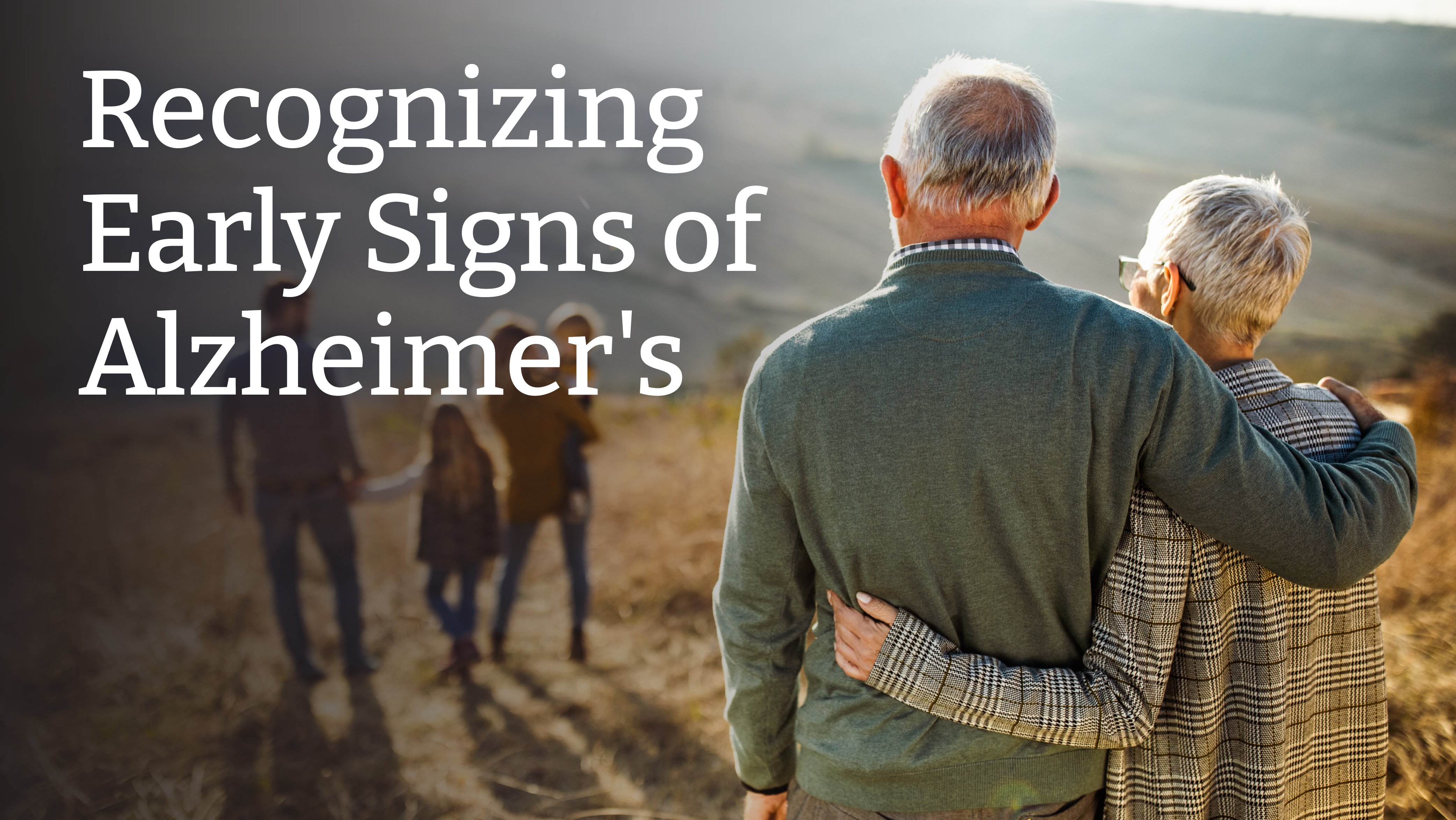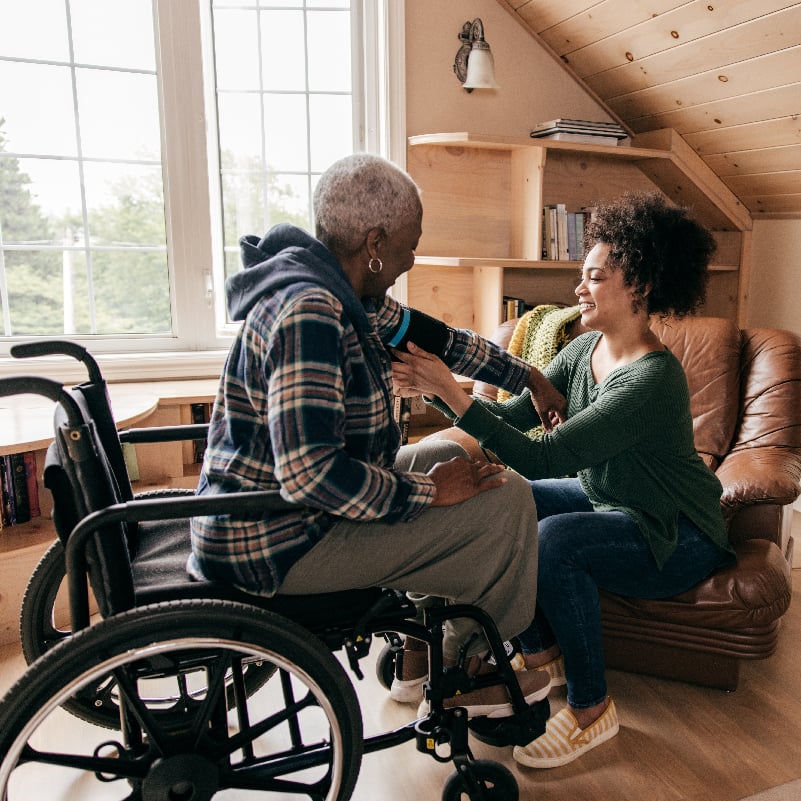Millions of families across the U.S. are living with the reality of a relative who has Alzheimer’s disease. The number of people living with this form of dementia is estimated to grow to 14 million by 2060.
While there is no cure for Alzheimer’s disease, there are services and resources available to help people maintain their brain health and manage their behavioral symptoms. The earlier that individuals can have access to these resources, the better health outcomes they can have.
Marla Bruns, MD, PhD, is a neurologist at the Unity Memory Center at Rochester Regional Health. She shares her insights into what to look for in recognizing the disease and when it may be time to ask for help.
What is Alzheimer’s disease?
As an advanced form of dementia, Alzheimer’s is a progressive disease that affects the brain. The parts of the brain most significantly affected are the ones that control memory, speech, and thought.
As the disease advances, the ability of the person to continue normally with daily activities becomes more difficult. According to the Alzheimer’s Association, between 60 and 80 percent of all dementia cases are connected to Alzheimer’s.
Once a person is diagnosed with Alzheimer’s, they tend live an average of 4-8 years, according to the Alzheimer’s Association. Depending on other factors, some people live as long as 20 years after their initial diagnosis.
The cause of the disease is unknown. Thousands of researchers and scientists are working around the world to identify where and how it starts.
Risk factors
Since the exact cause of Alzheimer’s disease remains unknown, it is hard to pinpoint what may directly heighten a person’s risk of living with it.
Based on decades of study, most scientists agree that the biggest risk factor is age. People tend to be diagnosed at the age of 60 or older, although some people are diagnosed with early-onset Alzheimer’s as young as their mid-30s. Prior family history of dementia and Alzheimer’s is also an indicator that a person may have a higher risk of being diagnosed later in life.
“So far, research suggests people who live a healthy lifestyle may be at a lower risk of being diagnosed with Alzheimer’s disease,” Dr. Bruns said. “A healthy lifestyle includes regular physical activity, a balanced and nutritious diet, limiting alcohol consumption, and not smoking.”
Signs of Alzheimer’s
Some changes to a person’s behavior or routine can be interpreted as clear signs of dementia-related illnesses.
In some cases, people are able to recognize these changes in themselves. For others, a spouse, loved one, or friend might see some of these behaviors or challenges first.
These are some of the widely-agreed upon signs from the CDC and Alzheimer’s Association that point to the likelihood that a person may be dealing with Alzheimer’s.
Memory loss
This specific type of memory loss goes beyond forgetting the name of an acquaintance once in a while. If a person cannot recall things he or she learned recently to the point where it becomes disruptive to daily life, this could be a warning sign.
Trouble with planning
Adults may experience difficulty with keeping track of where they are in a recipe or doing laundry. Remembering when and how to pay bills might be a challenge.
Tasks that were relatively simple – two or three steps – may take significantly longer now.
Difficulty with routine tasks
Errands or chores that are a part of everyday life may now become confusing. For example, a person with Alzheimer’s may drive to the grocery store and forget where they are going.
Time or location confusion
Losing track of time in various ways may become increasingly common. Not being able to remember the day of the week or when a certain event happened in the recent past – such as how they arrived at a friend’s house while they are still at the house – begin to affect daily life.
Issues with space or visual perception
Difficulty judging the distance between objects or people may lead to problems with reading, walking, or even driving.
This does not happen with all Alzheimer’s patients, but occurs with some.
Challenges with speaking or writing
People who live with Alzheimer’s can struggle with conversations – losing track of what the topic was or simply repeating themselves continuously.
This can also manifest itself as substituting common words they cannot remember, such as calling a van a “large automobile” or friends as “individuals.”
Losing things
Placing items in odd locations and then forgetting about them can become a typical behavior.
This can be a struggle, especially as the disease progresses and makes it more difficult for a person to retrace his or her steps and remember where they may have left an item.
Declining decision-making skills
Some people may make poorer choices with their finances or health in ways that are a significant shift in how they have behaved for most of their lives.
This can be especially problematic when their judgement or decision-making skills put themselves or other people at risk.
Social withdrawal
Limiting interactions with other people can be a sign that behavioral changes may be affecting someone with Alzheimer’s disease. If they are having trouble maintaining conversations, remembering people’s names, or accomplishing simple tasks, this may lead a person to pull back from social events that would require them to engage in those activities.
Mood changes
A person with Alzheimer’s can more frequently express feelings of suspicion, depression, confusion, anxiousness, or fear. For some people, those feelings are more likely to be expressed externally instead of kept inside.
This is true more often when the person is brought into situations that differ significantly from their usual routine.
When to seek outside help
If after looking at the early signs of Alzheimer’s disease, you believe yourself or a loved one is exhibiting some of these behaviors, schedule an appointment with a healthcare provider as soon as you can.
“Recognizing a big change in your own behavior or a loved one’s behavior should warrant a conversation with a primary care provider,” Dr. Bruns said. “Again, having access to assistance as early as possible can make a significant difference – both for the person living with Alzheimer’s and their friends and loved ones.”









